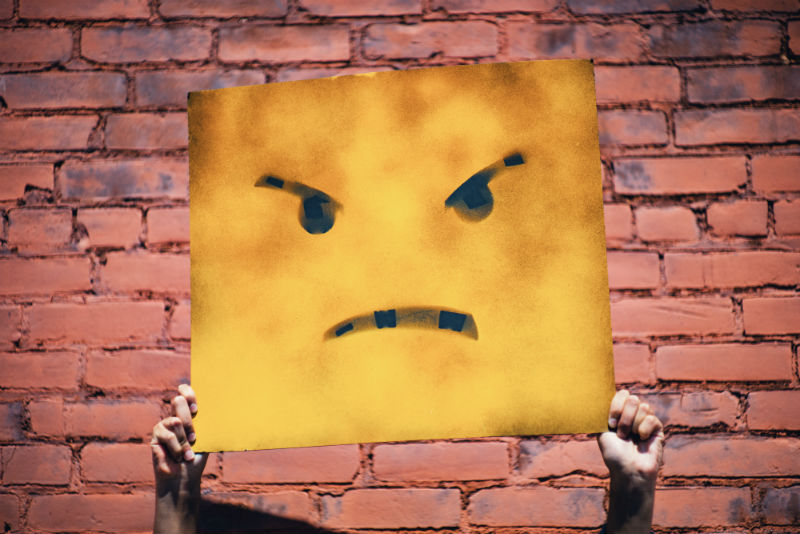
A ‘copyright’ is a type of intellectual property protection that legally establishes the ownership rights of an original work to the individual that created it. In the words of the U.S. Patent and Trademark Office, copyrights protect “original works of authorship including literary, dramatic, musical, and artistic works, such as poetry, novels, movies, songs, computer software, and architecture”.
For owners, copyright laws provide a much-needed layer of protection against the theft, misuse, or infringement of their property. It grants the creator exclusive rights to the work and the ability to determine whether—and under what circumstances—it may be used and/or reproduced by others.
So how do you apply for copyright protections? Actually, you don’t. In the U.S. there’s no registration process involved for copyrighting your original work. It may come as a surprise to many, but the copyright is in-fact automatic; once a work is created—and ‘fixed’ in a tangible form, such as a book, webpage, print, film, etc.—the creator is the sole copyright-holder and possesses all of the ownership rights associated with the work.
In terms of convenience, the immediate and automatic nature of copyright protection is great for owners. There’s no need for lengthy or time-consuming applications, no filing fees, and no time-lost awaiting an agency response. However, this means that you are the primary guardian of your copyright, and it’s up to you to detect and report infringement.
If you suspect somebody is misusing your copyright-protected work—either by accident or with malign-intent—you should immediately consult an intellectual property lawyer. An experienced attorney will help determine if your allegation does, in-fact, constitute copyright infringement. If so, the first thing they will do is help you draft a strongly-worded cease & desist letter.
What is a Cease & Desist Letter?
If you have evidence that another party is misusing your original work without your permission (and the violation appears particularly severe; for instance, they are making-money by taking credit for your work), you’ll likely want to file a complaint with the U.S. copyright office. Before you do that however, it’s smart to draft an attorney-reviewed cease & desist letter. As the name implies, the cease & desist letter demands two actions from the supposed infringer:
Cease: stop all purportedly illegal activity regarding the alleged infringement
Desist: once stopped, refrain from starting the misuse again
The cease & desist letter isn’t legally required. However, should your case reach the civil court, it provides strong legal evidence that you attempted to forewarn the infringing party regarding the misuse, but they ignored your request.
Likewise, anybody can compose a cease & desist letter, but it’s wise to get assistance from an attorney, specifically one with experience in intellectual property law. A strong cease & desist letter will be formal, concise, and clear, and an attorney will know exactly what to include and what not to include in the document. Additionally, letters from an attorney’s office (and on an attorney’s letterhead) are generally taken more seriously than those written by a non-professional, even if the content of the letter is similar.
What Should Go in the Letter?
Because cease & desist letters aren’t legally required, there’s no pre-established formula for what to incorporate in the document. However, a knowledgeable attorney will know exactly what to include based on your specific case. The typical cease & desist letter will contain the following:
- Description: a detailed description of the purportedly illegal behavior, including information regarding the original work, evidence that the original work is owned by the letter-writer, and any negative impacts that the infringement has had on the copyright owner
- Request to Cease and Desist: a formal request to stop using the copyrighted work, and once stopped, to not restart the illegal misuse again
- Consequences/Action: a detailed statement explaining the consequences if the alleged infringer disregards this cease & desist letter
- Time-Table: an established time-frame for which this letter must be responded to
In addition to these details, you’ll obviously want to include your name (or your legal representative’s, if applicable) and your contact information, as well as the name, address, and information of the party receiving the letter. You may also want to include a request for payment for the illegal misuse of your property. Many-times an infringing party is willing to stop using the copyrighted work, but less eager to reimburse the copyright owner for the illegal use; whether or not this mandates further legal action is something to be discussed with your legal representative.
For more information on what to include in your letter, click here.
The Bottom Line
Under U.S. law, any piece of original work is copyrighted immediately after its creation (and ownership rights are assumed to its creator). However, this means that it is the responsibility of the copyright-holder to detect and report misuse of their work. If you have reason to believe that your original work is being used without your permission, you should consult an experienced attorney to help draft a strongly-written cease & desist letter.
You aren’t required by-law to send a cease & desist letter and could instead take the matter directly to court. However, these civil court-cases are often-times expensive, time-consuming, and completely unnecessary. Most copyright-infringement disputes can be settled out of court, and the resolution process all begins with a cease & desist letter.
If you choose, you can compose this letter on your-own. However, it’s strongly recommended that an attorney at least review the document before it’s sent to the alleged infringing party. An attorney-reviewed cease & desist letter will have all of the necessary information presented in a concise and formal manner.
Importantly, when you send a cease & desist letter, you are not waiving any of your legal rights to pursue future legal action. In other words, you can still sue for damages associated with the infringement, even if the recipient immediately complies with the letter.
 March 15, 2019
March 15, 2019

